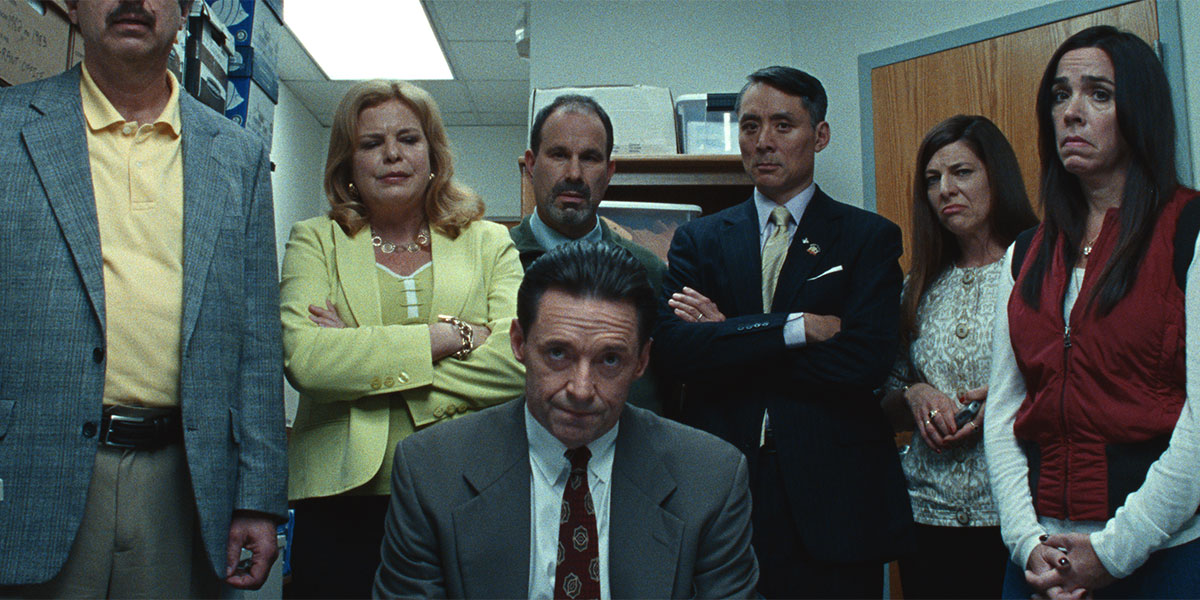by Chris Feil
Long Island public school administration corruption comes to light in Cory Finley’s Bad Education, a sharp examination of early 2000s secrets hidden in plain sight. A young school paper reporter Rachel (Blockers’ Geraldine Viswanathan) first goes looking for a quote on her high school’s flashy new building project. What she ultimately stumbles upon are records that reveal an embezzlement scheme funneling millions of taxpayer dollars into the interests of those at the top, including Hugh Jackman’s chief administrator Frank Tessone.
Based on an actual case of massive fraud, Bad Education is less salacious than you might expect and much more humanely interested. Mike Makowsky’s script starts with the big picture and focuses towards the personal, detailing not only the slippery slope of petty to major financial theft, but also the landmine of Tessone’s closeted sexuality in a culture that forces him into interiority. The film has a strong, smoothly told grasp on the finer points of the story, such as economic inequity, gender imbalance, and personal relationships allowing people to look the other way.

The film is stacked with an intelligent cast bringing humanity and wit to the surrounding characters, including Annaleigh Ashford, Ray Romano, and Alex Wolff. Allison Janney delights as Pam Gluckin, the first administrator caught committing credit card fraud, deepening the film’s complex emotional core and sharing unexpected chemistry with Jackman. Some of the ensemble (especially the great Viswanathan) aren’t given quite enough to work with as others in terms of a balanced narrative, but that’s because it surprising shifts its focus to key criminal Tassone.
As the film progresses, the ensemble piece fades to more of a showcase for Hugh Jackman, rewarding the actor with one of his most complex characters and paying off in his greatest performance. There’s something tragic in Tassone’s downfall as Jackman portrays it: a life of shame and vanity competing for space in his motivations, his public nice guy persona being a methodical, but ultimately easily torched veil to hide behind. Jackman turns this all in on itself, smoothly shifting from confusion and coldness with raw nerve composure. The actor isn’t often noticed for such subtle work as this, but it reveals a smartly observed sensibility that we should hope to see more of.
Where Bad Education succeeds most richly is with its tone. Empathic but not forgiving, the film thrives on its nuances of character and upper middle class economics to prevent it from becoming a reductive take on institutional evils. Never quite a wholehearted comedy or outright satire, instead the film first deceives the audience with lightness before rolling us into a clearer context. Finley makes something that is journalistic but not dry, immensely pleasing but not aggressive. It’s more low-key and confident in the audience’s brains than his debut Thoroughbreds; watching it is witnessing a filmmaker grow up and chill out in real time. B+